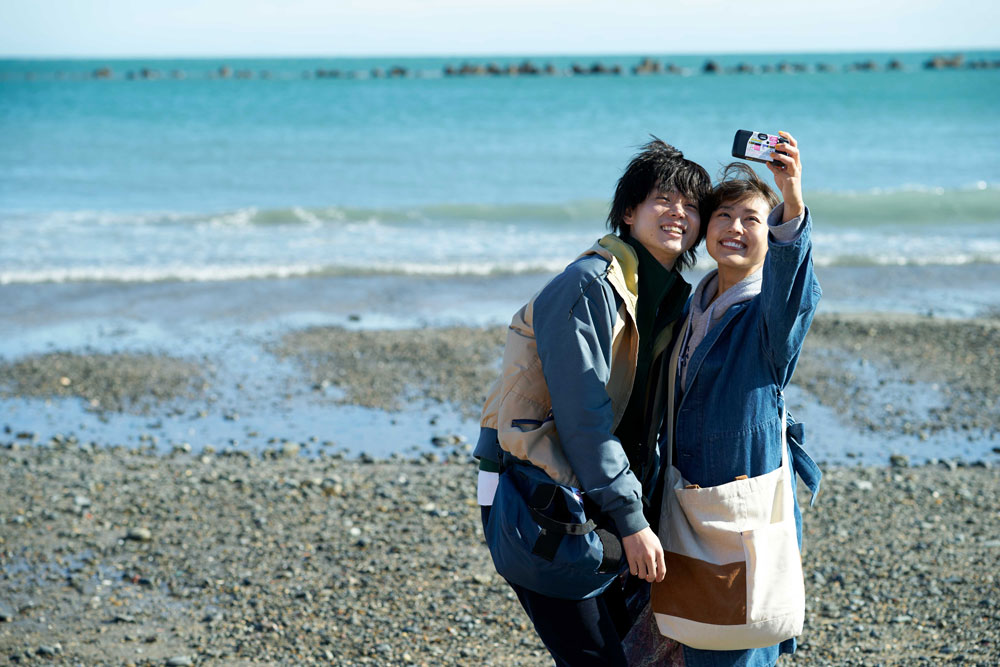!["I fell in love like a bouquet" The presence of Yuji Sakamoto, a screenwriter who changed director Hiroyasu Doi's "preparedness to challenge movies" [Director's Interview Vol.103]](https://cinemore.jp/images/f4e6da451b75a726409f98d0c2eb65c98dcd06ab8fdb76c2d8e9b565d8607ec3.jpg)
"I fell in love like a bouquet" The presence of Yuji Sakamoto, a screenwriter who changed director Hiroyasu Doi's "preparedness to challenge movies" [Director's Interview Vol.103]
Proper nouns that highlight “conversations that only the two of us can understand”
Q: I think it's rare to find a work with so many proper nouns, but was there anything that Director Doi particularly paid attention to when taking on this work, which has a certain kind of "restriction"?
Doi: I knew that I had to make sure that I didn't get too drawn into it. It will really hit the people I like, but I didn't want it to exclude everyone else.
I myself was part of the subculture youth of about 30 years ago, so I was very moved by it (lol), but I tried to look at it neutrally.
Q: Because you love subculture, you didn't want to get too involved, so you created it from the standpoint of ``looking at people''.
Doi: That's right. For example, in the movie, there is an exchange between Kinu and Mugi that says, ``Mr. Takagi from Cero runs a shop in Asagaya...'' and ``Is it a restaurant?'', but I don't think most people would understand what they were talking about. Yes. But I discussed with Mr. Sakamoto that maybe that's okay.
When I asked, ``Is it okay if I don't understand?'' she replied, ``Rather, it's important that only they understand and that the two of them are connected, so it's not necessary for everyone watching to understand the meaning.'' "No," he said. At that point, I could see clearly what I needed to portray, or rather, there was a part of me that had made up my mind.
 (c)2021 “Love Like a Bouquet” Production Committee
(c)2021 “Love Like a Bouquet” Production Committee
Q: It's interesting that even though the dialogue is only understandable to those who understand it, viewers can still perceive it as a universal love story.
Doi: For example, people who love professional wrestling may connect through their hobbies, or become acquainted through some type of study or research. In the same way, the ``subculture'' depicted this time is an item, not something to be depicted in itself.
After all, neither Mugi nor Kinu seem like the type of people who would become the so-called ``heroes of a movie.'' I simply think of this work as a story depicting events that happened during the five years of two people's lives in their 20s, and although it is a love story, it is also a coming-of-age film about people living in 2020. I think it is.
Q: Do you personally like works depicting everyday life?
Doi: That's right. During the period of refraining from going out, I watched the archives of director Yuzo Kawashima, and I have always had a deep appreciation for Japanese films that depict drama in the daily lives of ordinary people, such as the works of directors Mikio Naruse and Yasujiro Ozu. I am attracted to
Recently, I've been wondering if the Netflix movie `` Marriage Story '' (2019) is very close to what ``I Fell in Love Like a Bouquet of Flowers'' is trying to portray. That's what I thought. However, I personally think it's good to have a variety of movies, and I like pretty much everything, regardless of genre.
For the first time, I was freed from my “destiny” and was able to face the work in my own way.

